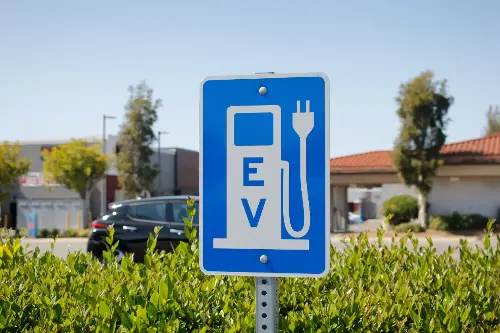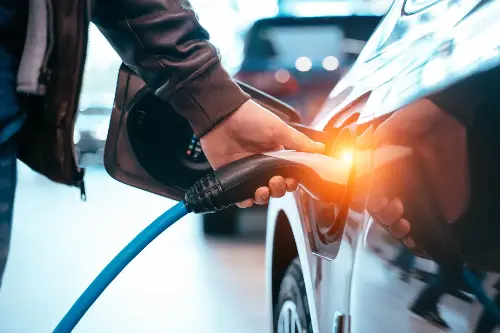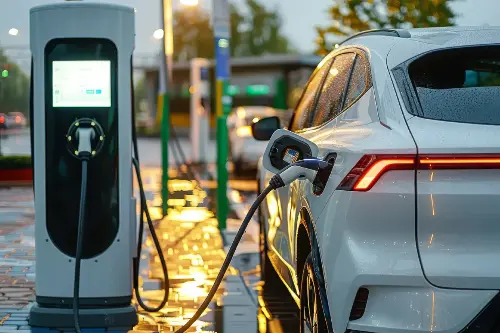Electric vehicles (EVs) have surged forward in the recent automotive narrative, powering past many of the hurdles that once slowed their ascent. Among the most prevalent of these hurdles was "range anxiety," a term coined to describe the worry that an electric vehicle might run out of power before reaching a charging station or its destination. Now, as the world leans into a greener and more sustainable future, we delve into why this concern is swiftly becoming a thing of the past.

The Advances in Battery Technology
The evolution of lithium-ion batteries has been pivotal in empowering electric cars to travel further on a single charge. Early electric cars struggled to break the 100-mile range barrier, but today's batteries are far more energy-dense, which means they can store more electricity without increasing in size or weight. Companies are investing heavily in R&D, with ambitions to create batteries that could offer ranges of over 500 miles. These batteries are not just lasting longer in terms of range, but their lifespan has also improved, with many now lasting upwards of a decade before needing a replacement.
Furthermore, solid-state batteries, a technology on the horizon, aim to outdo their lithium-ion counterparts on all fronts – offering even greater energy density, safety, and longevity, which will further diminish the concern of running flat.
The Growing Charging Infrastructure
One of the most significant factors easing range anxiety is the exponential growth in public charging infrastructure. From motorway service stations to supermarket car parks, the number of charging points is rapidly increasing. In the UK, for instance, the government has committed to a vast expansion of the charging network, making it more convenient to find a spot to recharge. Mapping technologies have also been integrated into EV navigation systems, actively directing drivers to the nearest charging stations and ensuring that a power source is never too far out of reach.
Moreover, the speed of charging has dramatically improved. What once took hours can now take minutes with the availability of ultra-fast charging stations. Such advancements mean a quick coffee break could be all that’s needed for an EV to gain enough power to cover hundreds of miles.

Smart Technologies in Electric Vehicles
Modern electric cars are equipped with a host of intelligent technologies designed to optimise battery life and manage energy consumption efficiently. Regenerative braking systems convert the kinetic energy lost during braking back into stored energy in the battery, markedly extending driving range. Eco modes and intelligent routing that considers elevation changes, traffic, and real-time energy usage are all aiding drivers in squeezing out every possible mile from their charge.
Consumer Behaviour and Attitudes Towards EVs
Consumer habits and perceptions are changing in favour of electric mobility. Educated on how to manage an electric vehicle's battery life, coupled with the experience and shared stories from current EV users, new adopters are less intimidated by the potential constraints of battery life. Awareness is growing around the practicality of home charging, where overnight charging fits seamlessly into everyday life - most drivers wake up to a fully charged vehicle every morning, ready to embark on their daily commutes or adventures without needing an en-route top-up.
Electric Vehicle Range and Reliability
Electric car manufacturers have made giant leaps in ensuring that the range figures promised are reliable under real-world conditions. The initial skepticism around manufacturer claims has diminished as independent testing and consumer experiences repeatedly reinforce the accuracy of these range numbers. Not only are new models being launched with impressive ranges, but existing models continue to receive updates that improve efficiency and, consequently, range.

The Role of Policy in Promoting EV Adoption
Governments around the globe are not merely spectating this transformation; they're actively driving it. Through subsidies, tax incentives, and eventual bans on the sale of new petrol and diesel cars, policymakers are ensuring that worries about electric car range will soon be outdated. This policy push acts to accelerate the rollout of charging infrastructure and the development of more efficient electric vehicles that will seamlessly integrate into daily life.
A Look to the Future
Electric vehicle technology is not static — it's a rapidly advancing field with a clear trajectory towards longer ranges and more convenient, faster charging options. The integration of renewable energy sources to power these charging stations aligns with the wider goal of decarbonisation and sustainability, reinforcing the belief that the future of motoring is electric.
Electric cars are steadily becoming the standard, not the alternative, and as that happens, the historic concerns about range and reliability are dissipating. With the convergence of technological innovation, infrastructure expansion, and forward-thinking policy, we are rapidly moving towards a time where the once-commonplace "charging worries" will be consigned to the annals of automotive history. As we embrace electric mobility, we're not just reimagining what it means to drive; we're reinvigorating the very concept of travel for a more sustainable world.
